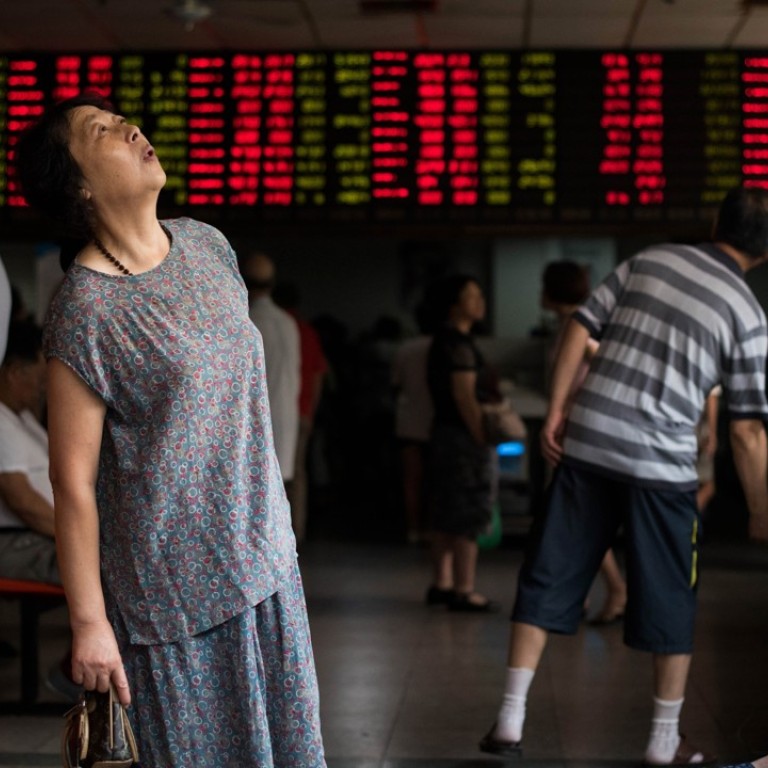
No, China is not weaponising the yuan in its trade war with the US
A policy of deliberate depreciation on Beijing’s part would risk a feedback loop of capital outflows and runaway currency weakness which would have grave repercussions – both within China and abroad
As if tit-for-tat trade tariffs weren’t bad enough, last week saw fears mount that Beijing has opened a new front in the economic conflict between the United States and China, and that the two sides are now engaged in a currency war. If China’s leaders really are weaponising the yuan, they are following a high-risk strategy, both for their own country and for the rest of Asia.
The fear among many observers is that Beijing is deliberately pushing the yuan down to enhance China’s trade competitiveness and offset the economic cost of the new US tariffs.
That’s what some in the US administration believe is happening. “China, the European Union and others have been manipulating their currencies and interest rates lower,” stormed the US president on Twitter.
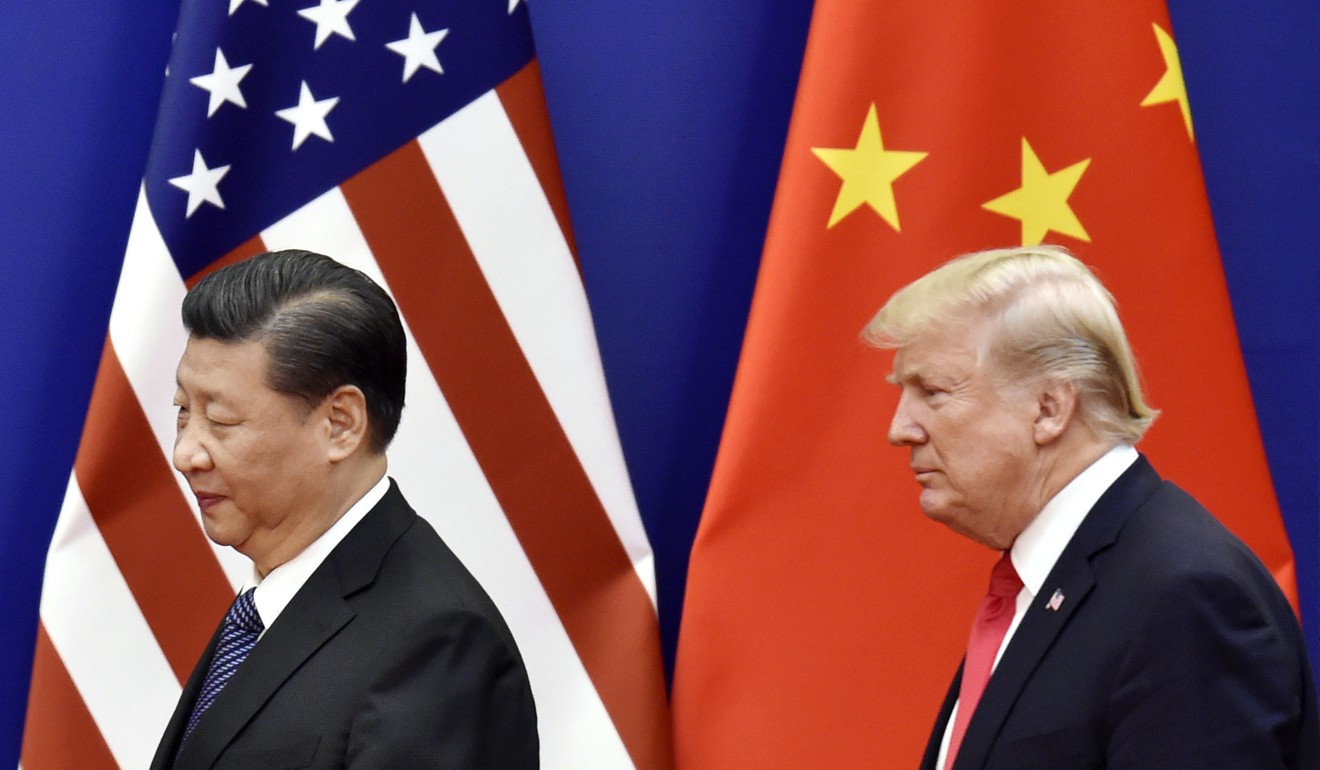
Asked about the yuan’s fall, US Treasury Secretary Steven Mnuchin appeared to agree. “The weakening of the currency creates an unfair advantage for them,” he said. “We’re going to very carefully review whether they have manipulated the currency.”
But while deliberately devaluing the yuan might negate the effect of US tariffs, it would be a dangerous course of action. If foreign investors became convinced that authorities were pushing the yuan down, and that the currency was set to sink further, they would begin to yank their money out of China.
Over the 12 months to April, foreign portfolio investors pumped some US$100 billion into China’s newly accessible onshore bond market. The reason was simple: yield. Over the past year, the yield on 10-year Chinese government bonds has averaged 3.75 per cent. That might not sound a lot. But it compares favourably with an average 2.6 per cent on a 10-year US Treasury note, and less than 0.5 per cent on an equivalent German Bund.
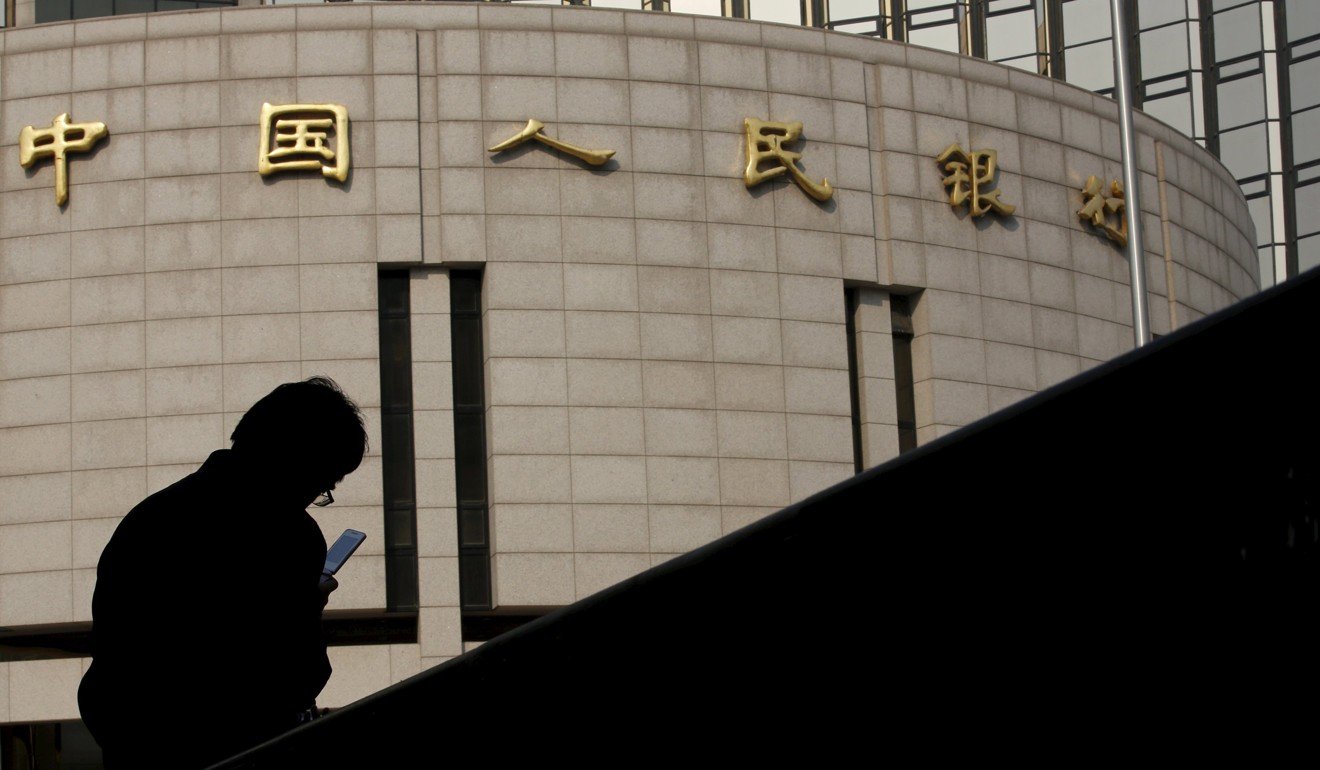
In an era of low and even negative interest rates, the extra return available on Chinese bonds was an enticing prospect for many international investors. But their decision to dip into the market for the first time was premised on the belief that policymakers in Beijing would stick to their promise to keep the yuan “basically stable” in the foreign exchange market. As long as the yuan remains stable, foreign investors can be reasonably confident of earning a positive return on their holdings of Chinese bonds. But anything more than a moderate depreciation of the currency will wipe out those gains, and turn their investment into a loss.
The tools – and weapons – China can use for global tech dominance
As a result, if foreign investors in Chinese bonds began to expect the yuan to weaken significantly, they would quickly head for the exit, selling their holdings and converting the proceeds into US dollars in a stampede that would exert heavy additional downward pressure on the yuan. It wouldn’t be long before Chinese savers and companies joined in. With the yuan weakening, they would quickly conclude that their money would be more secure offshore in a stronger currency.
The result would be capital outflows on a scale that could rival those following Beijing’s 2015 devaluation, which depleted China’s foreign exchange reserves by a hefty US$1 trillion.
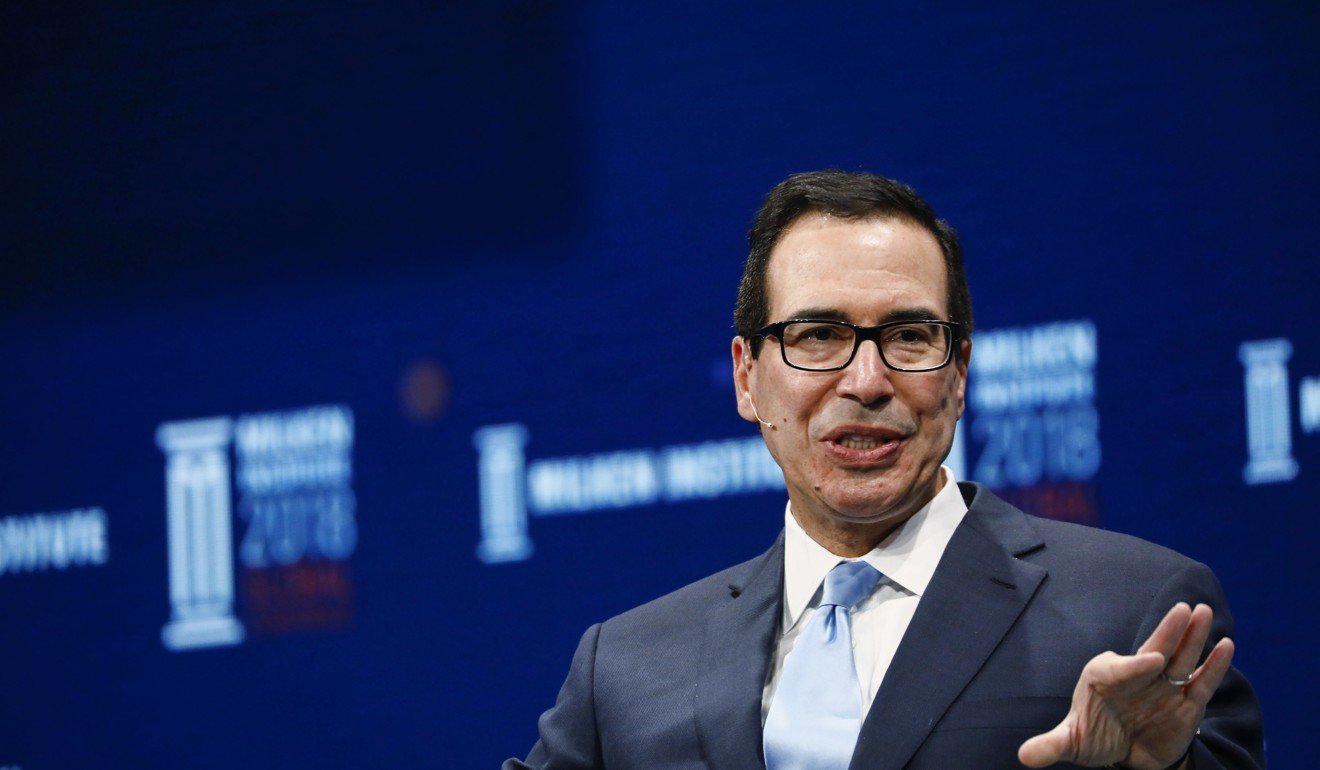
In short, a policy of deliberate depreciation could quickly develop into a feedback loop of capital outflows and runaway currency weakness which could have grave repercussions both within China and abroad.
At home, heavy outflows could trigger a crisis of confidence in China’s domestic financial system, which is already struggling under an economy-wide debt load equal to around 250 per cent of the country’s gross domestic product.
And abroad, a steep fall in the value of the yuan would put many of China’s Asian neighbours in an impossible economic position. A weaker yuan would erode the ability of other Asian exporters to compete with Chinese products in international markets, while pricing their goods out of China’s own domestic market.
It is likely policymakers around the region would decide they had no option but to maintain their competitiveness by intervening in the foreign exchange markets to weaken their own currencies alongside the yuan. However, doing so would cause its own problems.
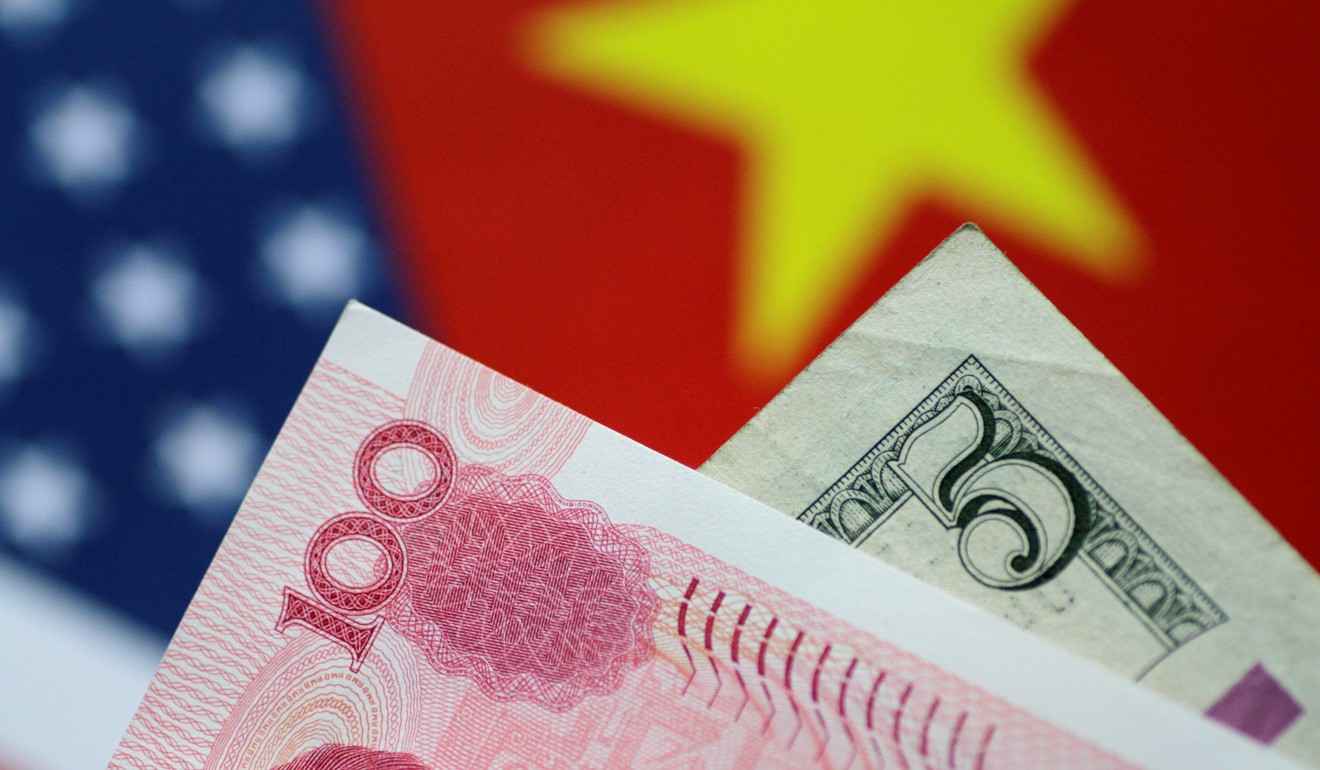
In recent years, many companies around the region have taken advantage of low US interest rates to borrow in US dollars. If Asian countries devalue, servicing those US dollar debts will suddenly become a great deal more difficult, and a rash of defaults will be possible.
Among the most vulnerable countries in the region are Indonesia, whose current account deficit makes it dependent on inflows of foreign capital, and Malaysia, where around half of the government’s debt is financed by foreign investors. In either country, currency depreciation could lead rapidly to a nasty funding crunch.
In short, if China were really to broaden its economic confrontation with the US into a currency war, it would cease to act as an exchange rate anchor for the rest of Asia, driving some countries in the region to the brink of crisis. And of course, Beijing could kiss goodbye establishing the yuan as a regional trade and reserve currency.
US tariffs make China and Germany allies – until they're not
All of this makes it unlikely that China really is deliberately seeking to depreciate the yuan as a weapon in its trade conflict with the US. Yes, the yuan has fallen against the US dollar over the last few months. But it has done so largely because it is playing catch-up. Over the second quarter of the year, the US dollar strengthened by around 7 per cent against a basket of developed economy currencies including the euro and the yen. The recent fall in the yuan brings it belatedly into line.
Of course, authorities in Beijing have not stood in the way of the yuan’s fall. But that does not mean they want it to go on sinking to strike back at US trade tariffs. Given the risks that a runaway depreciation would pose, both to China and the region, it is highly likely they will intervene to stop the fall should the yuan threaten to overshoot to the downside. If they do – thankfully – the feared currency war will be over before it has even begun. ■
Tom Holland is a former SCMP staffer, who has been writing about Asian affairs for more than 20 years

